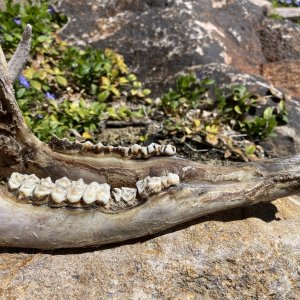M
manny15
Guest
We know that 80% of the town of Meulaboh in Aceh was destroyed by the Tsunami waves and 80% of the people also died. This is one of the towns that was hit the hardest.
But there is a fantastic testimony from Meulaboh. In that town are about 400 Christians. They wanted to celebrate Christmas on December 25th but were not allowed to do so by the Muslims of Meulaboh. They were told if they wanted to celebrate Christmas they needed to go outside the city of Meulaboh on a high hill and there celebrate Christmas.
Because the Christians desired to celebrate Christmas the 400 believers left the city on December 25th and after they celebrated Christmas they stayed overnight on the hill. As we all know the morning of December 26 there was the earthquake followed by the Tsunami waves destroying most of the city of Meulaboh and thousands. The 400 believers were on the mountain and were all saved from destruction.
Now the Muslims of Meulaboh are saying that the God of the Christians punished us for forbidding the Christians from celebrating Christmas in the city. Others are questioning why so many Muslims died while not even one of the Christians died there.
Had the Christians insisted on their rights to celebrate Christmas in the city, they would have all died. But because they humbled themselves and followed the advice of the Muslims they all were spared destruction and can now testify of God's marvelous protection.
This is a testimony of the grace of God and the fact that as believers we have no rights in the world. Our right is to come before God and commit our lives to Him. Our right is to kneel before the Lord God almighty and commit our ways to Him. He is our Father and is very capable to care for His children. Praise the Name of the Lord.
Bill Hekman, Pastor of Calvary Life Fellowship in Indonesia.
But there is a fantastic testimony from Meulaboh. In that town are about 400 Christians. They wanted to celebrate Christmas on December 25th but were not allowed to do so by the Muslims of Meulaboh. They were told if they wanted to celebrate Christmas they needed to go outside the city of Meulaboh on a high hill and there celebrate Christmas.
Because the Christians desired to celebrate Christmas the 400 believers left the city on December 25th and after they celebrated Christmas they stayed overnight on the hill. As we all know the morning of December 26 there was the earthquake followed by the Tsunami waves destroying most of the city of Meulaboh and thousands. The 400 believers were on the mountain and were all saved from destruction.
Now the Muslims of Meulaboh are saying that the God of the Christians punished us for forbidding the Christians from celebrating Christmas in the city. Others are questioning why so many Muslims died while not even one of the Christians died there.
Had the Christians insisted on their rights to celebrate Christmas in the city, they would have all died. But because they humbled themselves and followed the advice of the Muslims they all were spared destruction and can now testify of God's marvelous protection.
This is a testimony of the grace of God and the fact that as believers we have no rights in the world. Our right is to come before God and commit our lives to Him. Our right is to kneel before the Lord God almighty and commit our ways to Him. He is our Father and is very capable to care for His children. Praise the Name of the Lord.
Bill Hekman, Pastor of Calvary Life Fellowship in Indonesia.












